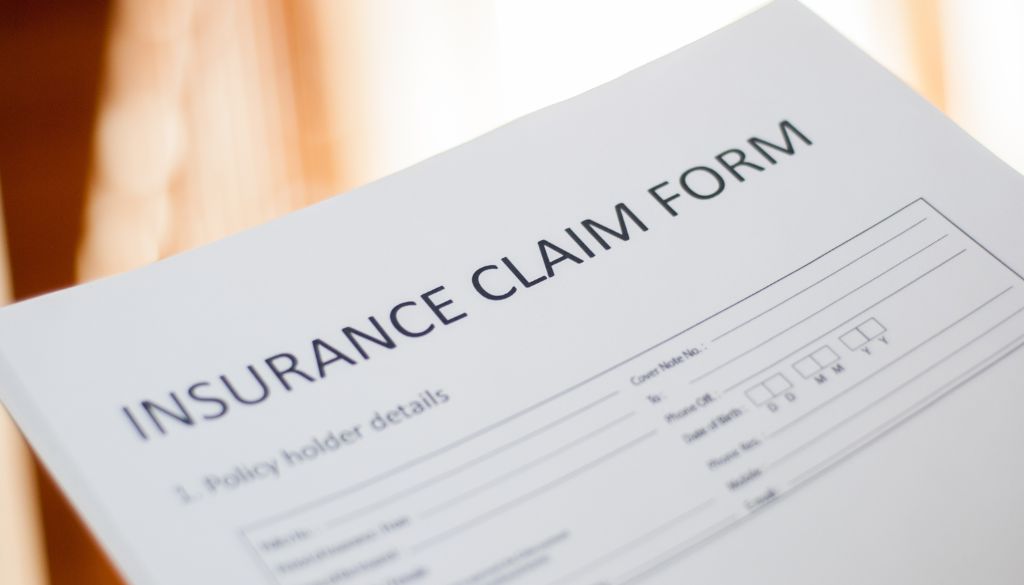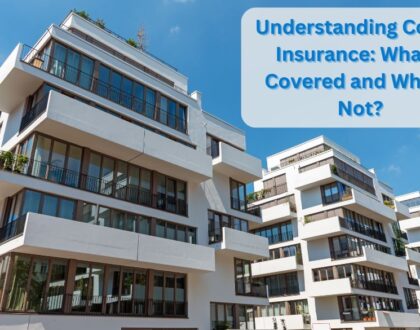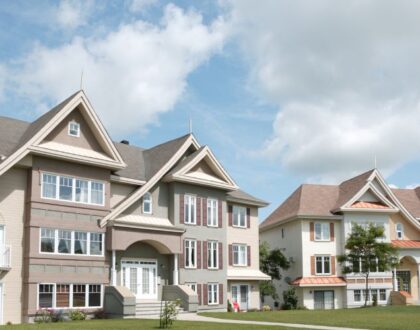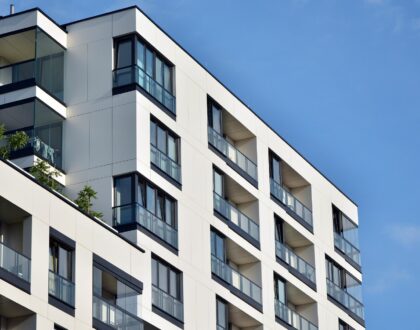Common Condo Unit Insurance Mistakes to Avoid

Owning a condo unit comes with unique responsibilities and insurance needs. Condo insurance, also known as HO6 Insurance, can cover all your personal property, the interior walls of the unit, and your liability in case an accident occurs inside. However, condo insurance can be complicated, and if you’re not careful, it can lead to unnecessary stress and financial setbacks. There are some common condo insurance mistakes that you should avoid to get the coverage you expect.
From understanding the extent of coverage needs to documenting damages and considerations related to exclusions in policies, we have compiled some essential tips an owner should consider when handling condo insurance in Chicago, Illinois.
Common Condo Unit Insurance Purchase Mistakes
Now, let’s get to some of the most common condo insurance buying mistakes and provide tips on how to avoid them. Being aware of and dealing with these issues will ensure you have adequate coverage and are well-prepared for unexpected events.
Skipping A Home Inventory
The first common mistake homeowners make is skipping a home inventory. A home inventory is a detailed record of all your personal belongings, descriptions, purchase dates, and property values. Proving value becomes difficult when you can only confirm what’s been lost or damaged if you have this list. In the face of such disasters as theft or fire, for example, you have a comprehensive inventory to ensure you get total compensation for everything you own. You may also take photos/videos and keep receipts to simplify the claims process.
Delaying The Claims Process

If claims are delayed, your payments could be reduced. In case of damage or loss, you must promptly report the issue to your immediate insurer. It enables faster evaluation and repair; this will then help to prevent further damage and loss. It is common for insurance policies to specify a specific period within which you need to process your claim, and missing those deadlines may get your claims denied.
Not Documenting The Damage
Not documenting the damage jeopardizes your insurance claim. If damage is done to your condo, you will want to report it well. Take pictures or videos of the damage so that there is a record of what happened. If you document before repairs begin, the insurance adjuster can assess the situation better.
Inadequate documentation may trigger disputes over the extent of damage. More importantly, it causes delays in compensation.
Filing Too Many Claims
Too many filed claims may have depressing implications for your condo insurance. The insurance carrier may view frequent filings as an increased risk, which can translate to increased premiums or even nonrenewal of a policy. It pays to examine the extent of damage before filing. If minor repairs or losses at or below your deductible amount can be handled without going through insurance, it leads to cost-effectiveness.
To maintain a clean claim history, reserve your claims only for significant losses or emergencies. Be sure to always safeguard yourself from frequent premium claims by maintaining and improving your condo’s infrastructure and addressing other possible perils as quickly as possible to slash insurance costs with adequate coverage.
Undertaking Repairs Without Approval
You may encounter issues with your coverage if you start running repairs without getting the proper clearance from your condo association insurance company. Many condominium insurance policies state that you have to preauthorize repair work, especially in cases involving structural changes or significant costs.
With this preauthorization, reimbursement for your repairs may be allowed. Moreover, nonapproved repairs may constitute a breach of the condo association’s or the local building codes’ rules and regulations—legal and money penalties usually follow these.
Not Aware of Coverage and Its Limitations
Most condo owners are unaware of the coverage they need and the limitations of the policy. A standard condominium insurance policy may be comprised of personal property, interior structure, and liability, but the risk cannot be exhausted. For example, damages to common areas are usually covered under the condo association’s master policy; however, gaps exist.
Go through your policy and the master policy to understand what’s covered and what’s not. You can consult a condo insurance agent to clearly outline your requirements and understand what’s covered and what’s not. Knowing what product to buy for proper coverage will help avoid unexpected expenses.
What Is Not Covered in A Condominium Insurance Policy?
Standard condo insurance policies can typically exclude coverage for damage caused by insects, birds, rodents, sewer backups, and intentional harm to others. Additionally, if you own valuable items such as jewelry or artwork, you might need additional coverage, as these high-value possessions can surpass the limits of a standard policy.
Here are a few other situations that may not be covered by your H06 insurance policy.
- Flooding and Earthquake: Condo insurance generally does not cover damage to your unit or personal belongings caused by earthquakes or flooding from storm surges, heavy rainfall, or other external factors.
- Wear and Tear: If your dishwasher, coffee maker, or laptop breaks down due to neglect or normal wear and tear, the cost of repairs or replacements is typically not covered by a standard condo insurance policy.
- Willful Damage: Intentional acts of destruction shall be exempt.
- Defending Against Identity Theft: Identity theft occurs when cybercriminals steal your personal or financial information, such as your bank account or Social Security number. This can lead to significant financial losses, wasted time, and a damaged credit score. Since most standard condo insurance policies don’t cover identity theft, you might need to purchase a separate policy or add extra coverage to protect yourself.
- Business Activities: Business activities conducted from your condo are generally not covered.
- Specific Types of Liability: Damages or personal injury due to criminal acts may fall outside the cover.
Also read: What Does Condo Association Insurance Policy Cover?
Conclusion
Remember that while these exceptions are commonly found in condo policies, it’s important not to assume that all policies will be identical. There are always variations to consider. That’s why we recommend consulting your insurance agent to gain a better understanding of the policy. Being aware of common mistakes and the limitations of your condo insurance policy will allow you to make more informed decisions and protect your condo better.
If you’re in Chicago, IL, you should contact Abe GT & Associates for personalized condo insurance coverage that fits your needs. We’re licensed professionals specializing in various insurance products at competitive rates throughout Illinois and other states. Our 101 approach guarantees you receive the best coverage and complete peace of mind. To get started, you can contact us at 312-738-1384.



